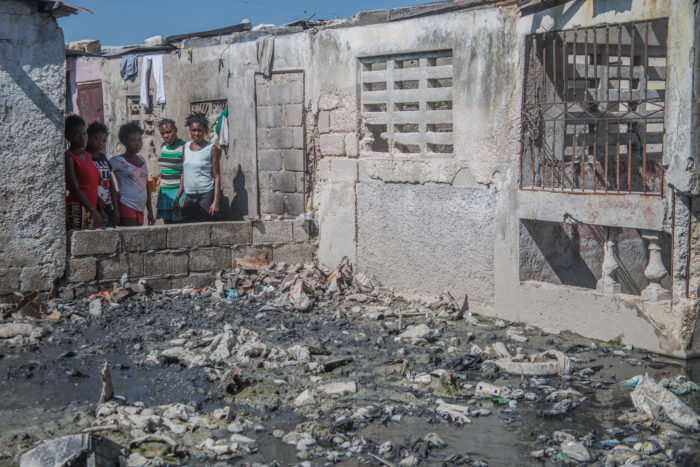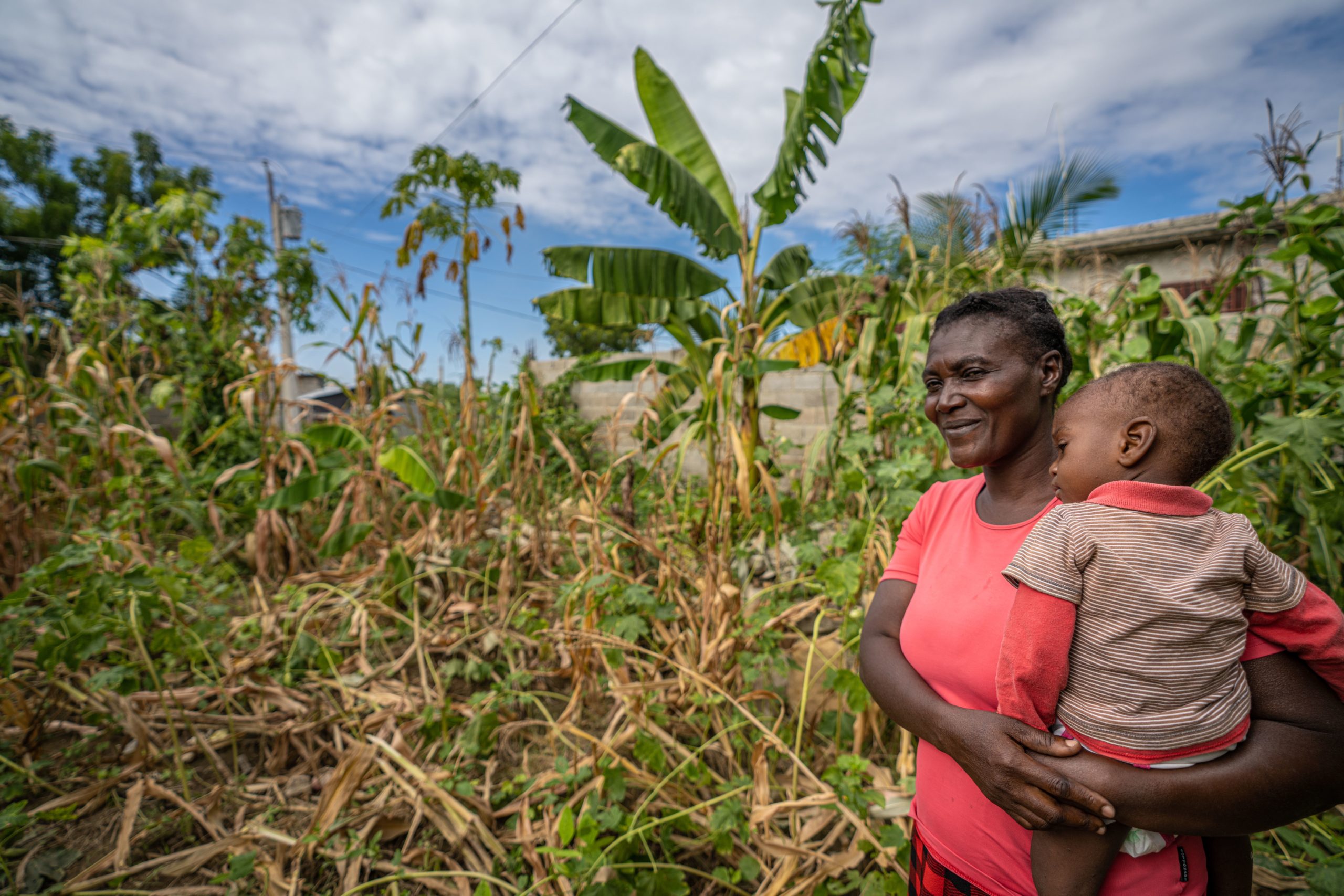Caribbean
Reflections on Insecurity and Violence in Haiti – What to do?
** This piece was written by MI Americas Haiti Country Coordinator, Yolette Etienne, in response to Haiti’s alarming growth in gang violence, impunity, and the deterioration of human security. MI Americas is a member of the Cadre de Liaison Inter-Organisations (CLIO) – a network of 51 national and international civil society organizations operating in Haiti.**
Lately the issue of insecurity is on everyone’s lips in Haiti. It commands the attention of public opinion and occupies a considerable portion of the media landscape. For several months, the Haitian population has been plunged into a daily nightmare of unbearable cries from relatives mourning their murdered loved ones, and the anguish of kidnapping victims, who in a few minutes, see their lives and their mental stability forever changed. The figures published by the Episcopal Commission for Justice and Peace bear witness to the scale of this tragedy. During the second quarter of 2020, it recorded 152 cases of violent deaths, including 12 women, in the metropolitan region of Port-au-Prince. Kidnapping cases exceeded 1,000 in the last quarter according to human rights organizations.
“Regular assassinations, repeated kidnappings and armed robberies – a good part of the year 2020 has been terrifying for Haiti in terms of crime and safety. Despite the onset of the COVID-19 pandemic, armed groups have brought the citizenry to its knees. Infants, children, young people and adults, none of these groups have been spared the assaults of armed bandits who have fragmented the territory.” It should be noted that the situation in January of 2021 confirmed the power of the federation called G9 gangs to exert control on the streets without concern and in some instances, with the protection of the police (see the demonstrations in Martissant and in Delmas on January 22nd).
“Between September 2020 and January 2021 kidnappings have exploded and reaching gigantic and unprecedented proportions. Not a day goes by without without dozens of cases of kidnappings often followed by murders, rapes, and releases for astronomical ransoms of hundreds of thousands of US dollars,” indignantly wrote an editor of the newspaper Le National.
How did we get here? How did our country, characterized by welcoming and friendly culture, find itself embroiled in these types of misfortunes? One must recall that for over 30 years the United Nations Missions and the Organization of Americas States have supported the establishment of peace and helped resolve major conflicts (13 years of peacekeeping troops and 16 years of monitoring by the United Nations Security Council with the active supervision of the Core group of countries – and today the BINUH supports the Haitian authorities).
Haitian society – whether through its institutions, civil society organizations, political parties, business associations – is increasingly fragmented and unable to find spaces for dialogue and consensus, even in the face of these serious threats.
This brings us back to the notion of human security conceived by the Commission on Human Security under the Secretary-General of the United Nations in 2003, and which gave rise to a large body of theories and methods. This concept calls for “protecting the vital core of all human life, in a way that enhances the exercise of freedoms and facilitates human development. Human security means the protection of fundamental freedoms, which are the essentials to life. It also means protecting the individual against serious or widespread threats. This requires building on the strengths and aspirations of each individual. But it also means creating systems – political, social, environmental, economic, military and cultural – which together give people the essential elements to their survival, livelihoods and dignity”[1].
The concept of human security is therefore at the crossroads of the implementation of human rights and human development. One cannot seriously speak of human security without prioritizing human rights, and the existence of a legitimate and democratic state authority with an effective participatory process. Respect for the rule of law, along with the harmonious support of humanitarian aid and development are important elements that can prevent both individual and systemic violence in Haiti.
When one discusses insecurity in Haiti it is essential to frame the issue within an overall fight against the threats that undermine the rights and the well-being of its citizens. The insecurity linked to the proliferation of gangs cannot be isolated from other issues in the country that also shake the foundations the social contract that should lead us to true national integration.

Unacceptable issues like food insecurity and hunger, unemployment, lack of housing, lack of clean water, a deficit of sanitation and public health, poor educational infrastructure, and social exclusion and marginalization are powerful factors contributing to insecurity – not to mention the current climate change and public health crises.
In the long-term, we know that these problems need to be analyzed and dealt with holistically and that we must offer policies that bring sustainable change [2].
Can we urgently, without delay, use our rich ancestral knowledge and culture to overcome the gangsterization of the Haitian political system which threatens our security and our common future? There can be no effective solutions to this problem without citizen mobilization and changes in the balance of power in the state apparatus and in society.
People question the relative acceptance of bystanders and witnesses to these atrocities (business owners who don’t flinch when customers are kidnapped, the indifference of passersby when kidnappings occur on the street, borderline applause in areas where kidnappings take place, participation in demonstrations led by gang leaders) … Are these acts of approval or survival mechanisms? Are we experiencing a slow process of dehumanization of groups left to fend for themselves?
It is also important to note the rise of demonstrations and sit-ins organized by citizen movements against kidnappings and insecurity. These protests bear witness to a growing rise in collective indignation which captures the anger and despair felt among Haitian families.
Even though many of these movements have been disproportionately punished by the police (sit – in of Nou pap Dòmi , January 20, etc.), it seems rather important to support and encourage these expressions of peaceful rejection of insecurity, and non-trivialization of violence.
But again, for NGOs … What to do?…
The NGO community, including the CLIO, appeared paralyzed around this question. It has remained silent on the issue of human security and has not spoken out against the escalation of gang violence in recent months. It is true that the line separating the positions of principle and the political positions can be fine and that the principle of neutrality prevails, yet it is clear that it is not possible to continue business as usual in the face of the scourge of insecurity.
We need, at this time, to demonstrate courage and a sense of human solidarity to (re)create a responsible sense of humanity in the country. Following years destabilizing factors that disrupt our society, it is our responsibility to help rebuild meaningful relationships along with our Haitian partners that contribute to mending ruptures and improving human security.
—
Notes:
[1] Human security now. Report of the Commission on Human Security, Paris, Presses de Sciences PO, 2003, p.
[2] Sustainable policies and actions relating in particular to : a) Regional planning; b) The massive creation of jobs and promotion of the knowledge of the populations of the slums in our 10 departments; (c) Genuine social security measures ensuring access for the entire population to a minimum level of social protection; (d) Access to education and public health services; e) Social integration policies breaking with systematic and silent apartheid; f) The protection of women and girls against gender- specific violence and the multiplication in all cities of the country of reception centers for women victims of violence; g) The protection of minors and orphans (orphans of January 12, 2010, orphans of cholera, etc.); h) A radical revision negotiated with the USA and Canada on the removal of large groups of people belonging to serious crime networks who are returned to the national territory every month; i) Exemplary trials making it possible to bring before the courts those responsible for the massacres perpetrated against working-class neighborhoods in order to attack head-on the culture of impunity; j) Strengthening of the judicial system at all levels , which cannot be satisfied with functioning with 0.8% of the national budget.


